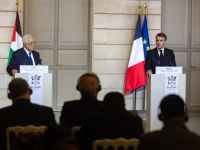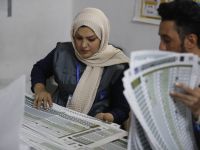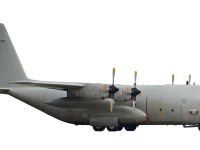Kosovo's ethnic Albanians went to the polls Saturday in what the Yugoslav province's UN administration has dubbed "the first democratic, free and fair election" in their history.
Voting in the municipal elections began at 7:00 am (0500 GMT) in 1,466 polling stations in 30 municipalities, and was due to continue until 7:00 PM (1700 GMT), with more than 900,000 voters due to elect 920 councilors.
But in contrast to most municipal elections, the key issues were not refuse collection or street lighting but a groundswell of separatist feeling in Kosovo that could prompt the Albanian majority to step up its drive for independence.
The vote supervised by the Organization for Cooperation and Security in Europe (OSCE) is the first to be held in the province since the United Nations took over its administration in June 1999.
Sixteen months after NATO bombing forced an end to the Kosovo war, the poll has received enthusiastic support from the province's ethnic Albanians, but Kosovo's Serb 100,000-strong Serb minority is boycotting the election.
However, the excitement among Kosovar Albanians was almost tangible as hundreds of eager voters gathered outside polling stations on a cold, dry morning.
Bejtush Krasniqi was standing outside a Pristina polling station at 6:45 am waiting for the doors to open.
"Lots of people will come to vote, and because I'm old, I wanted to come early to avoid the crowd," he told AFP.
"It's a historic day. I am 65 and I have never voted in liberty."
Even so, the difficulty of compiling an electoral register in a wartorn province where many have been displaced from their homes or lost identity documents, coupled with the complexity of the polling system, led to some early confusion.
The first voter in the queue at the polling station, a central Pristina primary school, was turned away when its doors opened at 7:10 am, having been told to seek out another voting office in the same building, an AFP journalist at the scene said.
Problems finding the registration of the second and third voters in the queue, a middle-aged couple, led to a further delay and it was 20 minutes before they could cast their vote.
Forty minutes after the polling station had opened, only three votes had been cast.
A British election observer, who asked not to be named, said: "It's a very uninspiring start. The biggest problem is the lack of information for the voters."
Although the count was to begin immediately after the closure of the poll, only partial results are expected to be available Sunday and a final tally of elected representatives not available until at least a week later, the OSCE said.
All 39 ethnic Albanian political groups represented in the poll share a nationalist platform with the mass of voters, who represent more than 90 percent of the province's estimated 1.9 million population.
Beyond this immediate goal, the parties' programs are limited to vague promises of economic regeneration, so most have fallen back on their history in order to distinguish themselves from their rivals.
Parties representing former guerrilla fighters are ranged against partisans of the passive resistance to Serb rule led by Ibrahim Rugova's parallel government during the 10 years of repression that preceded Kosovo's 1998-1999 war.
Rugova's Democratic League of Kosovo (LDK) is the clear favorite to win a majority of votes following a campaign that rested heavily on the respected but uncharismatic figure's reputation as "father of the nation."
Behind him is Hashim Thaci's Democratic Party of Kosovo (PDK) which has used every political meeting and rally carried out across the province to ram home its message that it is the true inheritor of the militant separatism of the Kosovo Liberation Army (KLA).
Kosovo's third biggest political force is the Alliance for the Future of Kosovo, a coalition of minor parties hoping to win support through the popularity of their chief, Ramush Haradinaj, a former guerrilla leader.
The elections are to be held under the authority of UN Security Council resolution 1244, which tasked Bernard Kouchner's UN administration with giving the province self-government and "substantial autonomy." -- PRISTINA, Yugoslavia (AFP)
© 2000 Al Bawaba (www.albawaba.com)







